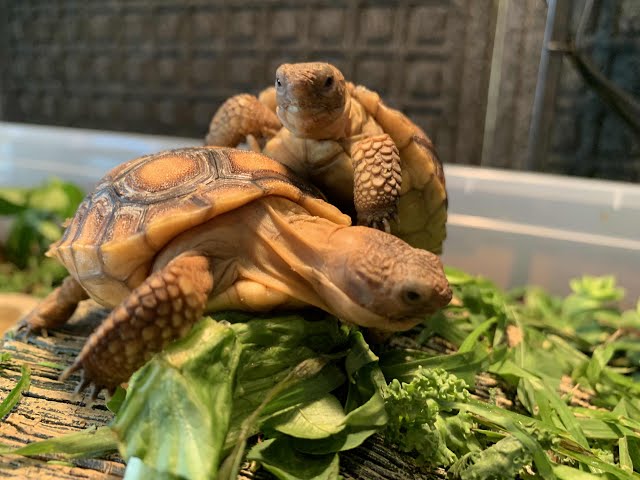The Art of Handling Tortoises
Tortoises are fascinating creatures that have captured the hearts of many reptile enthusiasts. Their slow and steady pace, unique anatomy, and longevity make them intriguing pets for some, and subjects of admiration for others. However, handling tortoises requires a specific set of skills and knowledge to ensure their safety and well-being. In this comprehensive guide, we will delve into the art of handling tortoises, providing you with essential safety tips and techniques.
Understanding Tortoises
Before we dive into the specifics of handling tortoises, it’s crucial to understand these magnificent creatures. Tortoises are terrestrial reptiles known for their sturdy shells, which act as protective armor. They belong to the Testudinidae family and are characterized by their slow movement, herbivorous diet, and relatively long lifespans, often exceeding several decades.
Tortoises are gentle beings, but they can experience stress and discomfort if not handled properly. To ensure their well-being, it’s essential to learn the art of handling them safely.
Safety Tips for Handling Tortoises
1. Wash Your Hands
Before handling your tortoise, it’s essential to wash your hands thoroughly with soap and water. This simple step helps prevent the transfer of harmful bacteria or chemicals from your hands to your pet.
2. Approach Calmly
Approach your tortoise calmly and slowly. Quick and sudden movements can startle them, causing stress. It’s best to let your tortoise see and recognize you before attempting to pick them up.
3. Lift Carefully
When lifting your tortoise, place both hands under their shell, ensuring they are well-supported. Never pick them up by their limbs or tail, as this can cause injury.
4. Support the Weight
Tortoises can vary in size and weight, but all need proper support when handled. Be prepared to support the full weight of your tortoise to prevent any strain on their legs or shell.
5. Avoid Overhandling
Tortoises are not as social as some other pets, and they may become stressed if handled excessively. Limit your interactions to short periods to allow them to rest and relax.
6. Pay Attention to Temperature
Tortoises are cold-blooded reptiles, meaning they rely on their environment to maintain their body temperature. Ensure they are not exposed to extreme heat or cold during handling.
7. Handle with Care
Handle your tortoise gently, avoiding sudden movements or jostling. Be patient and allow them to move at their own pace when they are on the ground.

Techniques for Safe Tortoise Handling
1. Placing Your Tortoise Down
When it’s time to put your tortoise back down, find a suitable, safe location. Gently lower them onto a soft surface, such as grass or a padded area, to prevent injury to their shell or legs.
2. Supervise Outdoor Encounters
If you decide to take your tortoise outdoors, ensure they are in a secure, enclosed area where they cannot escape or be exposed to potential dangers like predators or extreme weather conditions.
3. Health Check
Regularly inspect your tortoise for any signs of illness or injury. If you notice any unusual behavior or physical changes, consult a veterinarian with expertise in reptile care.
4. Create a Safe Environment
Design an enclosure that mimics their natural habitat, including appropriate lighting, heating, and humidity levels. A well-maintained environment will contribute to their overall well-being.
5. Provide a Balanced Diet
Tortoises require a diet rich in fiber and calcium. Consult with a veterinarian or reptile specialist to ensure you are feeding them the right foods in appropriate quantities.
6. Socialization
While tortoises may not be social in the same way as dogs or cats, they can benefit from occasional interaction. However, always prioritize their comfort and well-being.
Conclusion
The art of handling tortoises involves a delicate balance of patience, care, and knowledge. By following the safety tips and techniques outlined in this guide, you can ensure a long, happy, and healthy life for your tortoise companion.
Remember that tortoises are unique creatures that deserve our respect and understanding. Treat them with the care they deserve, and you’ll be rewarded with the companionship of one of nature’s most remarkable reptiles. Please take a moment to visit their page to find additional resources about handling tortoises.
